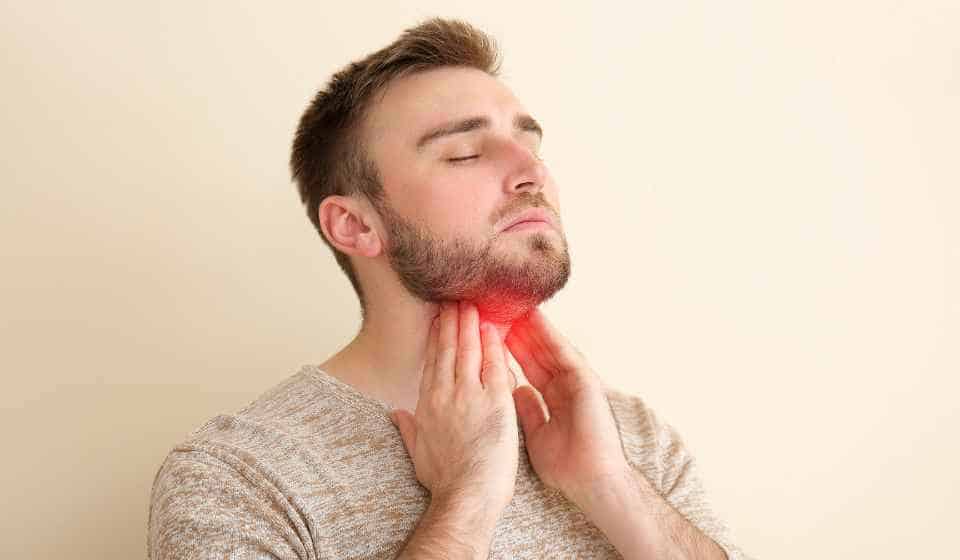Men often experience premature ejaculation, which hurts sexual pleasure. It is characterized by an abrupt erection that occurs either before or soon after the start of sexual activity and may cause relationship and self-esteem difficulties. Nonetheless, substantial progress may be made by comprehending the problem and addressing it with the appropriate tactics and solutions.
This thorough article offers methods and solutions that may be useful in managing early ejaculation.
A). Understanding Premature Ejaculation

It’s important to comprehend what premature ejaculation is before discussing solutions. The disorder is usually divided into two categories: primary (or lifelong), which starts with your first sexual experience and lasts all or almost all of the time; and secondary (or acquired), which appears after you’ve experienced sex without ejaculation issues. A complicated interplay between biological and psychological variables may give rise to this problem.
Also Read: Erection: Strengthen Your Erection with Home Exercises
1. Diving Deeper into Primary (Lifelong) Premature Ejaculation:
For many men, Primary PE (lifelong premature ejaculation) continues to be a difficult and sometimes irritating sexual condition. Further investigation into the possible biochemical and functional factors may lead to more efficient management and therapy, even if the precise reason is yet unknown.

i). Possible Biological Contributors:
• Neurotransmitter imbalances: Research indicates that a major contributing factor may be an imbalance in neurotransmitters such as dopamine and serotonin, which are essential for controlling ejaculatory regulation. Dopamine imbalances may increase arousal and sensitivity, while low serotonin levels may cause ejaculation to occur more quickly.
• Sensitivity in the Genitalia: Men who suffer from primary PE may have heightened sensitivity in the glans penis, which is the head of the penis. When physically stimulated, this increased sensitivity may cause the ejaculatory reflex to occur earlier than usual.
• Genetic Predisposition: Studies indicate that a higher risk of PE may be linked to certain genetic variants. Although genetics cannot cause PE, it might increase a person’s susceptibility to the disease.
• Underlying Medical Conditions: By affecting hormone levels or nerve function, some medical diseases like as diabetes, thyroid disorders, and neurological disorders may indirectly alter the regulation of ejaculation.
Also Read: 14 Best Emerging Healthcare Gadgets
ii). Imbalances in Function:
• Reflex Dysfunction: Some men with primary PE may have overactive ejaculatory reflexes, which are in charge of orgasm and semen evacuation. This indicates that ejaculation occurs more quickly because the reflex is activated too readily.
• Pelvic Floor Dysfunction: Control over ejaculation and sexual response are greatly influenced by the muscles of the pelvic floor. The proper operation of the ejaculatory reflex may be interfered with by weak or hyperactive pelvic floor muscles, which can lead to PE.
• Psychological Factors: Stress and worry may intensify the symptoms of primary PE, even if they are not the main cause. A vicious cycle may result when the ejaculatory reaction is further amplified by the fear of losing control or failing the companion.
iii). Understanding the Specific Contributions:
It’s critical to keep in mind that these biological and functional components are seldom found alone. They often interact in intricate ways, giving each person a different presentation of Premature Ejaculation. To pinpoint the precise causes and create a customized treatment plan, a healthcare provider must conduct a comprehensive medical and sexual history review.
iv). Precautions / Advice:
- Negative or traumatic early sexual encounters might occasionally leave mental scars that exacerbate primary PE.
- Irrational sexual expectations and cultural pressures may also affect anxiety and performance pressure, which can affect the regulation of ejaculation.
- Lifestyle choices including drug and alcohol abuse, sleep deprivation, and neurotransmitter levels may have an indirect impact on nerve function and neurotransmitter levels, which may exacerbate PE symptoms.
v). Control of Primary Premature Ejaculation:
Primary Premature Ejaculation may be a lifetime struggle, but it’s important to understand that there are useful management techniques. People with primary Premature Ejaculation may have more sexual pleasure and meaningful relationships by treating the underlying biological and functional issues with different types of treatment, medication, and lifestyle changes.
To overcome the difficulties of primary Premature ejaculation, never forget that consulting a specialist and maintaining open lines of communication with your spouse are crucial first measures. Men suffering from this kind of Premature Ejaculation may take back control of their sexual lives and feel fulfilled if they get the right information, assistance, and individualized care.
Also Read: The Ultimate Guide to Smart Health Devices
2. Mysteries of Secondary Premature Ejaculation: A Closer Look at Triggers
It may be quite frightening and disturbing to have Secondary Premature Ejaculation (PE), a sudden and unwanted visitor in previously happy sexual sessions. In contrast to its enduring cousin, its late-life appearance highlights putative causes that may be hiding under the surface. Let’s explore the lifestyle, physical, and psychological aspects that might release this unwelcome guest in more detail.

i). Psychological Contributors:
• Stress and Anxiety: These unwanted guests may increase arousal on both a physical and emotional level, making it more difficult to keep your composure during sex. The tension that arises from not meeting or exceeding expectations might worsen, making it harder to ejaculate on time.
• Depression: Sexual responses may be greatly impacted by the emotional toll and decreased sexual desire that are linked with depression. A shorter ejaculation delay and less control are other effects of lower testosterone levels.
• Relationship issues: Poor communication, disagreements, and emotional distancing may lead to stress and anxiety in a partnership, which can impede sexual intimacy and cause PE.
• Past Sexual Trauma: Whether they occurred recently or in the past, traumatic sexual encounters may leave emotional scars that can show up in a variety of ways, such as trouble controlling one’s erection. Another factor that might lead to PE is the dread of intimacy and flashbacks.
Also Read: The Ultimate Guide to Smart Health Devices
ii). Medical Contributors:

• Thyroid Disorders: Hormone abnormalities affecting sexual function may result from both hyperthyroidism and hypothyroidism. Further influencing ejaculatory regulation may be variations in dopamine and serotonin levels.
• Hormonal Imbalances: Disorders such as low testosterone or high prolactin may cause ejaculatory control to be compromised, which can result in erectile dysfunction and PE.
• Neurological Conditions: Nerve function and neurotransmitter pathways may be impacted by multiple sclerosis, Parkinson’s disease, and spinal cord injuries. These conditions can also influence ejaculatory control and sexual response.
• Prostate problems: Prostatitis, or inflammation of the prostate gland, may aggravate genital sensory nerves, causing increased sensitivity and early ejaculation.
Also Read: Continuous Glucose Monitoring Devices For You
iii). Lifestyle Triggers:

• Substance Abuse: Certain prescription medicines, alcohol, and cocaine may cause neurotransmitter imbalances and impaired nerve function, which can affect sexual function and exacerbate PE.
• Excessive Fatigue: Weariness from physical and mental strain may drain energy stores and drop testosterone levels, which can impair endurance and make it harder to regulate erection.
• Sleep Deprivation: Prolonged sleep deprivation alters neurotransmitter function and hormone balance, which may lead to PE. It may also impact sexual response.
Also Read Latest Devices for Living a Healthy Life
iv). Understanding the Interplay:
It’s critical to keep in mind that these triggers rarely operate alone. They often combine and intensify one another to form a complicated web of interrelated elements. For secondary premature ejaculation (PE) to be effectively managed, a comprehensive strategy that addresses the unique mix of triggers via treatment, medicine, and lifestyle changes is essential.
v). Taking Back Control:
Even though secondary premature ejaculation (PE) might seem like an overwhelming challenge, there is always hope. Through pinpointing the fundamental causes and obtaining expert assistance, people may create customized plans to take charge and restore their sexual health.
Regaining sexual fulfillment and happiness is possible when secondary premature ejaculation (PE) is successfully treated with open communication, evidence-based therapy, and support. Never forget that you are not traveling alone. Regaining your sexual health and well-being requires taking the necessary steps to seek expert assistance, which is a show of strength.
Also Read: What Medical Devices Should I Have At Home?
B). Exercises and Physical Techniques To Overcome PE

Many therapeutic activities are useful in treating early ejaculation. Among them are:
1. Pelvic Floor Exercises: Reducing early ejaculation may be helped by strengthening the pelvic muscles. Kegel exercises are a well-liked kind of exercise where you utilize the same muscles you would use to urinate. These workouts reduce the desire to ejaculate too soon.
2. Aerobic Exercises: It has been shown that regular 30-minute stationary bike workouts or five-times-weekly running regimens improve erectile function.
3. Yoga: Some yoga positions help to strengthen and elongate the pelvic muscles, which may facilitate early ejaculation.
Also Read: How Many Lungs Clearing Devices Are Available?
C). Dietary Changes and Home Remedies

Premature ejaculation may be effectively treated with over-the-counter medications and lifestyle modifications:
1. Diet: Consistently consume a well-balanced diet. Some foods that are good for your sexual health are eggs, garlic, ginger, carrots, and honey.
2. Foods High in Zinc: Zinc strengthens the immune system, increases libido, and aids in the management of premature ejaculation. Beef, spinach, lamb, and oysters are among the foods high in zinc.
3. Hydration: Almost every element of body functioning, including sexual health, is impacted by dehydration. Make sure you consume 8 to 10 glasses of water daily minimum.
Also Read: Wrist Blood Pressure Monitor Accuracy
D). Professional Help

Never be reluctant to consult a professional. Premature ejaculation and other sexual difficulties may sometimes be caused by psychological disorders or untreated mental health issues. Seeking guidance from a counselor or therapist, especially one who specializes in sexual health, might be beneficial. Treatment options for premature ejaculation include cognitive behavioral therapy, sex therapy, and relationship counseling.
Also Read: What Technology Helps Your Lungs?
Conclusion
As with any health concern, a candid conversation with a medical professional can guarantee an accurate diagnosis and the best course of action for treatment. In actuality, premature ejaculation is a common and curable illness. You and your spouse may have a fulfilling sexual connection by combining natural therapies with counseling and medical care.
Never forget that treating premature ejaculation—or any other kind of sexual dysfunction, for that matter—takes time. More significantly, it is being honest with your spouse and committing to enhancing your sexual wellness. There is aid available, and you are not alone. Don’t be afraid to look for it.
Recent Posts
Here is reply of high-demand removable wallpapers. The wallpaper industry has changed a lot in recent times, with the launch of removable wallpaper being seen as a blessing for homeowners, renters,...
Brown is an often neglected color when considering interior design but brown decor living room ideas could make your house feel warm, sophisticated, and timeless. More adaptable than any other...
